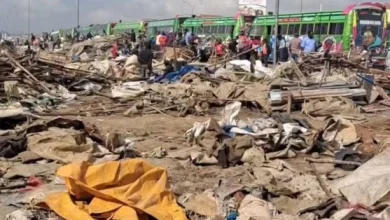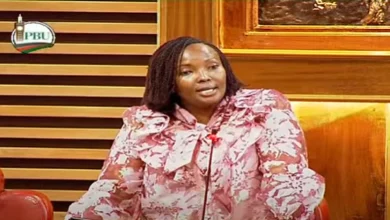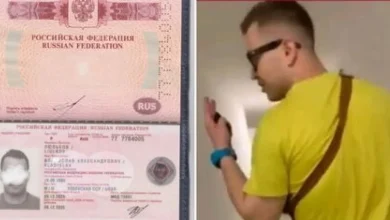The United States has announced visa restrictions targeting government officials from African countries, Cuba, and Grenada along with their family members

The United States has announced visa restrictions targeting government officials from African countries, Cuba, and Grenada — along with their family members — over their alleged complicity in Cuba’s overseas medical missions program. Washington characterizes this program as a forced-labor “scheme” that enriches the Cuban government while short-changing Cuban health workers and depriving Cuban citizens of medical care at home.
In an official statement published by the U.S. Department of State, Washington said it is imposing these measures to “promote accountability for those who perpetuate exploitation” of Cuban medical personnel. The statement accuses the Cuban government of “renting” doctors to foreign governments at high prices, retaining most of the proceeds, and subjecting the Cuban clinicians to restrictive and exploitative conditions. The U.S. government demands that countries directly pay doctors for their services rather than the Cuban regime, which it calls “regime slave masters.”
The U.S. Department of State under Secretary of State Marco Rubio emphasized that it would continue engaging foreign governments and take action as needed to end such forced labor. The visa restrictions extend to officials implicated in facilitating these exploitative arrangements and their immediate families.
The Cuban medical mission program has been in operation for decades, dispatching healthcare workers to countries in Latin America, Africa, and the Caribbean under bilateral agreements. While Cuba presents the program as international solidarity and humanitarian aid, critics—including the U.S.—view it as a revenue-generating scheme for the Cuban government that infringes on the rights and compensation of Cuban medical personnel.
One specific example includes Kenya, which engaged Cuban health professionals from 2018 to 2023 under a bilateral agreement aimed at supplementing healthcare staff in underserved rural counties. The agreement initially called for 100 Cuban specialist doctors to work in Kenyan hospitals while Kenyan doctors would train in Cuba. The first group of 100 Cuban doctors (53 family doctors and 47 specialists) arrived in Nairobi in 2018. By mid-2020, 120 Cuban doctors were working in various counties, including Mandera, Wajir, Isiolo, Lamu, and Vihiga, covering specialties such as nephrology, radiology, orthopedics, surgery, and neurology. In late 2023, Kenya terminated these contracts, a move supported by Kenyan medical unions who argued that funds spent on foreign doctors could be used to employ more Kenyan doctors.
Other countries affected by the U.S. visa restrictions include Grenada and Brazil. The Biden administration revoked visas of Brazilian health officials allegedly complicit in Cuba’s “Mais Médicos” (More Doctors) program and similarly targeted officials in Grenada and several unnamed African countries.
The Cuban government has strongly rejected the U.S. accusations, calling its medical missions humanitarian solidarity efforts and condemning the visa restrictions as unjustified aggression motivated by political agendas.
Washington calls on all nations supporting democracy and human rights to join efforts to confront Cuba’s practices and support the Cuban people. The restrictions and diplomatic pressure form part of broader U.S. policy aimed at ending what it describes as coercive labor practices tied to Cuba’s overseas medical missions





